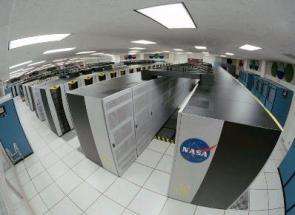October 22, 2007 weblog
Nanowire Manipulation Could Lead to Hand-Held Supercomputers

Researchers have been working on nanowires and microchips so tiny that they could be used to build supercomputers that could fit in the palm of your hand. Hopefully, the nanowires will eventually lead to small, powerful gadget such as hand-held PCs, mobile phones as powerful as laptops, and medical advances.
The group of engineers, with members from the University of Edinburgh in Scotland, the Karlsruhe Institute of Technology in Germany and the University of Rome in Italy, will have their results published in an upcoming issue of Science.
The researchers studied the behavioral properties of nanowires—which are more than 1,000 times thinner than a human hair—and investigated how the wires react and respond to exterior forces compared with conventional wires.
"What we found is when we made these wires smaller and smaller they started to behave in a very funny way," researcher Michael Zaiser told the BBC News.
To control the strange behavior, the researchers developed a computer program that allows engineers to predict when problems might arise with the wires, and how to avoid them.
Using this understanding, the group found ways to ensure that tiny wires in electronics hardware will be able to retain their efficiency, which is essential for the power requirements in scaled-down supercomputers. The wires can then be used to fabricate tiny microchips and processors for electronics applications.
"This will help to make small devices much more powerful in the future," Zaiser said. "Holding a supercomputer in the palm of your hand will one day be possible - and we are going to make sure all the wires are in the right place."
Via: BBC News





















